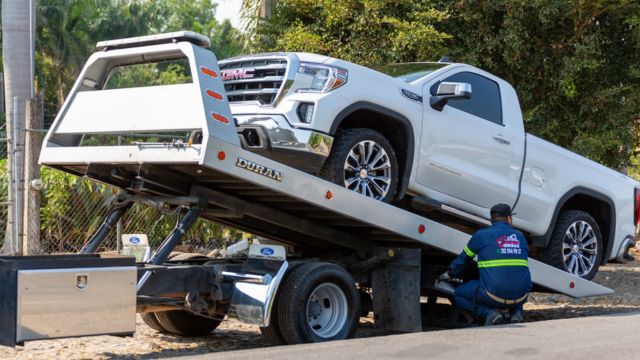Understanding the legal limits of car towing on private property in New Jersey is important for both vehicle owners and property owners. The state has laws in place to balance the rights of property owners with protections for vehicle owners. Knowing when and how towing is allowed can help prevent unnecessary costs and disputes.
Towing Laws in New Jersey
New Jersey has specific regulations to ensure fair towing practices. The New Jersey Predatory Towing Prevention Act outlines when and how vehicles can be removed from private property. This law prevents unauthorized or unfair towing practices, requiring that clear procedures be followed.
When Can Police Tow Your Vehicle?
There are several situations where police may tow a vehicle from private property:
- Violation of local parking ordinances – If a car is parked illegally, police may order its removal.
- Public safety concerns – A vehicle that blocks emergency access or creates a hazard can be towed.
- Criminal activity – If a car is stolen or involved in a crime, authorities may impound it.
In emergency situations, police have broader authority to tow vehicles immediately, such as when a car is involved in an accident or is creating a road obstruction.
Towing from Private Property
Property owners have the right to remove unauthorized vehicles but must follow legal procedures:
- Clear signage – A visible sign must state that unauthorized vehicles will be towed.
- Permission – The property owner must authorize the tow, and only a licensed towing company can perform the removal.
- Documentation – The towing company must report the tow to the local police.
For vehicle owners, parking in a lot without clear signage does not always mean their car is safe from towing. It is important to be aware of posted warnings and property rules.
Common Towing Situations
- Residential properties – Homeowners can have unauthorized cars removed from their driveways or private roads.
- Commercial properties – Businesses may tow vehicles to ensure parking spaces remain available for customers.
- Apartment complexes – Management can enforce parking rules, but they must inform tenants of towing policies in advance.
What to Do If Your Car Is Towed
If your vehicle has been towed:
- Contact the local police department to confirm where your car was taken.
- Provide identification and proof of ownership to retrieve your vehicle.
- Understand the fees involved, including towing, storage, and administrative costs.
- Dispute the tow if necessary, either by filing a complaint or seeking legal assistance.
Preventing Towing Issues
To avoid having your vehicle towed:
- Pay attention to parking signs and property rules.
- Do not park in areas marked for towing or where you could block access.
- If parking on private property, get permission from the owner to avoid misunderstandings.
- Property owners should ensure that clear signs are posted to warn drivers about towing policies.
Final Thoughts
Both vehicle owners and property owners must understand the towing laws in New Jersey to avoid conflicts and unnecessary expenses. Staying informed about rights, responsibilities, and legal procedures can help prevent disputes and ensure compliance with state regulations.
For more useful information on local laws and regulations, check this out and stay informed about your rights in New Jersey!
Disclaimer: Our team has meticulously fact-checked this article to ensure accuracy and eliminate any misinformation. We are committed to providing honest, reliable, and trustworthy content for our readers.




